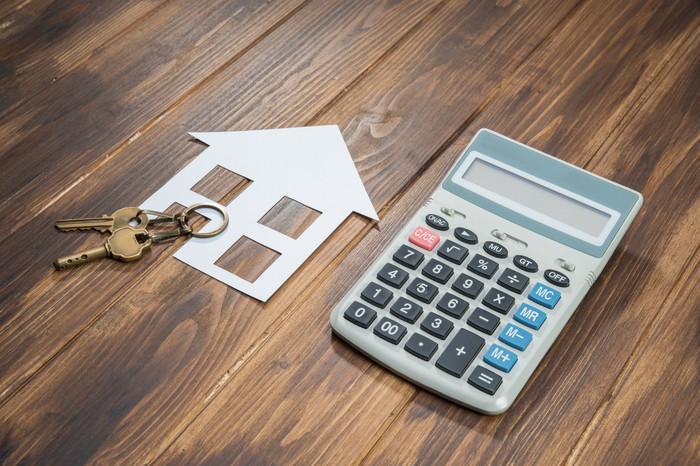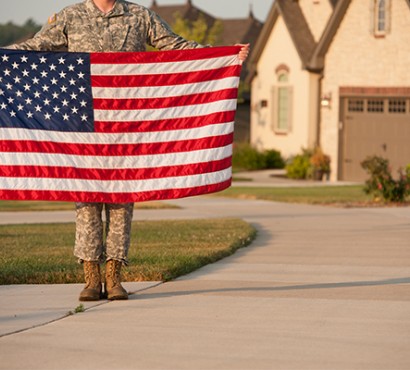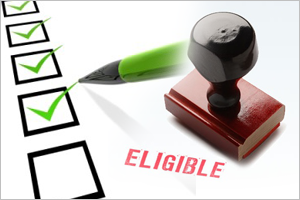 Purchasing a home for first time can sometimes be a little nerve-racking. Beyond all the preparation possible it still takes hands-on experience to get comfortable with the process, including buying a home for the very first time in South Carolina.
Purchasing a home for first time can sometimes be a little nerve-racking. Beyond all the preparation possible it still takes hands-on experience to get comfortable with the process, including buying a home for the very first time in South Carolina.
Various events occur when first buying a home, some that could be considered both fun and exciting and perhaps others not so much. Surely it’s fun and exciting when just beginning the process and looking for homes for sale online.
That’s how most first-time buyers start by visiting various websites and playing the “what if we lived there” game. Taking the next step means physically visiting properties along with a real estate agent at a weekend open house or walking through on your own after setting up an appointment with the sellers.
The part that’s not as fun, but necessary is applying for a home loan and getting a pre-approval from a mortgage lender. Sure, getting approval for a mortgage is also an “approval for credit” However, unlike getting a car or a credit card loan, a mortgage does require a bit more documentation. In addition, there are different types of loan programs available that can lead to some confusion as to what loan might best suit someone’s needs.
You can do all the research you want to get familiar with some of these programs but you do need to speak with an experienced loan officer who can craft a set of options from which to choose. For first-time buyers, it’s best to understand the loan types and why one might be better than the other. Let’s take a closer look at what is available in today’s lending marketplace.
Government and Conventional
Mortgage loans in general are separated into two classes, a government-backed loan and a conventional one. A government-backed loan is so-called because the loan carries some sort of inherent guarantee. This guarantee doesn’t guarantee a mortgage loan applicant a loan approval but does provide the lender with some degree of confidence when approving such a loan. There are three such programs, VA, USDA and FHA loan programs to be used to finance an owner-occupied property.
Conventional mortgage loans do not have such a government guarantee and the risk is placed entirely upon the mortgage lender processing the loan application. Should the loan ever go into default the lender endured the entire loss, foreclosing on the property and putting up the home for sale at a foreclosure option.
Conventional loans fall into the conforming or jumbo category. A conforming conventional loan means the maximum loan amount is $766,550 in South Carolina. A loan above that amount is called a jumbo loan. Most conventional loans today are underwritten to standards issued by mortgage giants Fannie Mae and Freddie Mac.
A third option that occupies a very small slice of the mortgage lending pie is a portfolio loan. A portfolio loan is a mortgage that does not conform to the government or conventional guidelines and the lender intends to keep the loan and not have the option to sell it to other lenders or Fannie and Freddie. The lender keeps the approved loan in its “portfolio” with no intention of selling it in the secondary market.
Government Loan Basics for First-Time Buyers:
FHA Loans. While the FHA mortgages do require a small down payment requirement, it’s only 3.5% of the purchase price. The FHA loan is not restricted to any particular class of borrower nor is the loan limited to certain areas and does not have a maximum income limit.
The Federal Housing Administration, or FHA, introduced the guidelines banks could use which provided universal standards banks could use and first introduced in 1934 as part of the National Housing Act of 1934. FHA loans carried a mortgage insurance policy that compensated lenders 100% of the loss should the lender be forced to foreclose on the property as long as the lender followed prescribed FHA guidelines.
The FHA program requires two separate mortgage insurance premiums, an upfront, and an annual one. The upfront premium is 1.75% of the sales price and rolled into the loan just like the other two government-backed programs. In addition, there is an annual premium of .55 basis points (as of 2024) of the outstanding loan amount and paid monthly.
While the FHA program is not reserved for first-time buyers, it is extremely popular for them due to the low down payment requirement and competitive interest rates.
 VA Loans. VA loans are those underwritten to guidelines set forth by the Department of Veterans Affairs. This program was first introduced in 1944 as a way to help returning soldiers from WWII more easily assimilate into civilian life and part of the original “G.I. Bill.”
VA Loans. VA loans are those underwritten to guidelines set forth by the Department of Veterans Affairs. This program was first introduced in 1944 as a way to help returning soldiers from WWII more easily assimilate into civilian life and part of the original “G.I. Bill.”
The driving force behind this original home loan program took into consideration that soldiers didn’t have all that much time saving up for a down payment and closing costs while serving their country during wartime. To address this, the VA loan requires no down payment and is one of only two 100% financing programs.
Over the years, eligibility for a VA home loan has expanded to include not just veterans of the armed forces but also active-duty personnel with at least 181 days of service. In addition, those who have served for at least six years with the National Guard or Armed Forces Reserves can also apply for a VA home loan as well as un-remarried surviving spouses of those who have died while serving or the result of a service-related injury. In addition to not requiring a down payment, the VA home loan limits the types of closing costs the veteran is allowed to pay.
The government guarantee to the lender that approved the VA home loan compensates the lender for a percentage of the loss. This guarantee is financed by what is referred to as the Funding Fee. This is expressed as a percentage of the loan amount and can vary slightly based on the number of times the veteran uses the VA loan to buy a home as well as the type of loan. For a first-time buyer in South Carolina using the VA loan program, the funding fee is 2.15% of the loan amount and is rolled into the loan amount. For instance, a home is listed for sale at $225,000.
First-time buyers do not need a down payment and the funding fee is 2.15% of that amount or $4,837.50. The funding fee is not paid out of pocket but instead rolled into the loan amount for a final loan amount of $229,837. VA loans do NOT have an extra monthly mortgage insurance premium like the other two government-backed loans.
 USDA Rural Housing Loans. This loan program has been around for several years under different names but today the United States Department of Agriculture issues guidelines for the program. USDA Rural Development and VA are the only $0 down mortgage programs today. USDA loans are available for first-time homebuyers and move-up buyers, but the qualification requirements are a bit different.
USDA Rural Housing Loans. This loan program has been around for several years under different names but today the United States Department of Agriculture issues guidelines for the program. USDA Rural Development and VA are the only $0 down mortgage programs today. USDA loans are available for first-time homebuyers and move-up buyers, but the qualification requirements are a bit different.
USDA rural loans are meant to help homebuyers in rural or semi-rural areas more easily obtain financing as well as having no down payment requirement. Many locations just outside Charleston, Greenville, Columbia, etc are still eligible. The USDA loan can only be used in previously approved areas as well as limiting the amount of household income of those not only on the loan application but in the household as well.
For those who are considering a USDA loan, the first step is to make sure the potential property is in an approved zone. Your loan officer can help walk you through the process but you can also log onto USDA’s website where all you need do is enter the property address to see if the home is within an acceptable area.
If the property is in an acceptable area the borrowers must then calculate household income and fall at or below the maximum income limits established for the area by the USDA. These limits are set at 115% of the median income for the area. There are adjustments to this amount so it’s not exactly 115% but your loan officer can explain these limits to you.
Like, VA, the USDA loan compensates the lender for a percentage of the loss should the lender be forced to foreclose. This guarantee is financed the USDA Guarantee Fee of 1.00% of the loan amount and rolled into the loan as an upfront fee. An annual fee is required which is 0.35% of the loan amount and paid in monthly installments.
Using a $150,000 loan, the upfront fee is $1,500 resulting in a final loan amount of $151,500 and the annual fee is $525 and paid in installments of $43.75. If a first-time buyer wants a loan with zero down but is not VA-eligible, the USDA loan is a great option.
Conventional Loans for First-Time Buyers
Conventional loans are available up to $766,550 in South Carolina approved using guidelines set by Fannie Mae and Freddie Mac. The minimum down payment for either program is 5.0% yet there are special programs that only ask for 3.0% down for owner-occupied properties.
Conventional loans for first-time buyers are a good choice for those with a larger down payment. If a conventional loan is equal to at least 80% of the value of the property the lender will require a mortgage insurance premium. For those who can structure a mortgage where the first lien is at or below the 80% threshold, there is no mortgage insurance. Contrast that requirement with a conventional loan that requires mortgage insurance regardless of the difference between the value of the property and the amount borrowed.
Conventional loans are also available to finance more than just a primary residence and are used to purchase a vacation or beach home or rental property as well. For example, say a couple is looking to buy a vacation property in Charleston. They intend to rent it out during the summer but will live there during the fall and winter. The sales price is $400,000 and they intend to put down at least 20%. It’s important to understand the difference between a rental property and a vacation home.
A property is considered a vacation home if it is not rented out for more than two weeks per year, otherwise, it’s considered a rental. The difference between the two is the minimum down payment required and the interest rate. You can expect to have a slightly higher rate and larger down payment requirement for a rental property compared to a vacation or second home.
Which of these is the ideal choice for a first-time buyer? If you have funds saved up for a down payment and closing costs then you might consider a conventional loan that requires no monthly mortgage insurance or upfront mortgage insurance premium.
If you require a loan program with little or nothing down, then a government-backed loan might be the ideal fit. Call us today at the number above to discuss your options.
